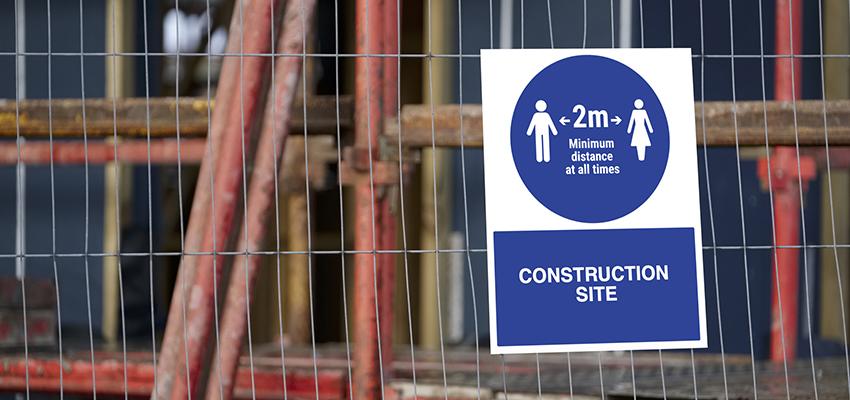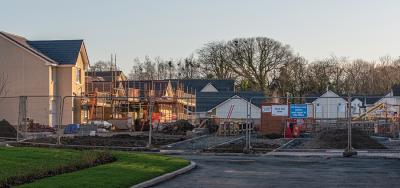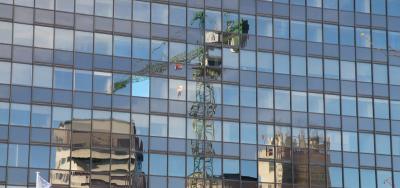LABC survey sees bumpy road ahead for construction
A trends survey undertaken by LABC finds that the coronavirus has had a devastating impact on the construction sector.
Figures from the Office for National Statistics showed in March that construction output fell 6% overall – before the full effect of the lockdown on 23rd March. In April UK overall GDP dropped by 20.4%, with construction suffering a 40% fall. The Planning Portal reported an 18.5% reduction in new planning applications this April compared to April 2019. And the Bank of England has warned that unemployment could double this year.
This economic backdrop will inevitably affect the building industry. There was an early return to work for construction with developers and contractors trying to finish existing projects. This has been complicated by some basic materials in short supply. Although there has been an increase in work since April, it is too early to say how large the increase is and whether it will be sustained.
LABC’s ‘mini’ survey results
In May LABC piloted a ‘mini’ survey of building control heads in medium sized cities/larger towns to see how they were being affected by COVID-19. (LABC is aiming to roll this out across its network later this year on a quarterly basis). The key findings were:
- COVID-19 hadn’t had an effect on permanent staffing levels although 10% of staff in total across the authorities had been redeployed to COVID-19 related tasks.
- Heads were estimating that as a result of COVID-19 incomes would decrease by an average of 19% in this financial year.
- One fifth had reported that discussions were being had on budgets with their council’s leadership.
- More than two thirds (68%) of the work of these building control teams was fee earning (the remainder being in relation to public protection works such as dangerous structures, enforcement and safety at sports grounds).
Conclusions
Clearly local councils are under immense financial pressure with the loss of revenue combined with the costs of running emergency plans. However, making cuts in building control will set-back progress in strategic areas:
- Implementing the new building safety regime (the new building safety bill is expected imminently). The new regime will be radically different and the expectations of the new Building Safety Regulator (HSE) will involve greater building control input not just for 18m+ buildings, but for all work under the building regulations. All building control professionals will have to be licensed in order to practice on any scale of scheme and all teams will be audited by the Designated Body on behalf of the Building Safety Regulator.
- Building control is fee earning and any cuts will damage councils' incomes. The new building safety responsibilities are likely to see higher chargeable rates and result in enhanced fee earning potential.
- Climate change and retrofit measures. The greatest challenge is to reduce carbon use in existing buildings and 25% of these will need specialist work that requires building control support.
- The building industry drives local economies and local employment. It has to be supported by building control. The construction industry is a top ten industry with an output of £110 billion (approx. 7% of UK GDP) employing over 3 million people (approx. 1:10 jobs).
LABC Chief Executive, Lorna Stimpson, said, "Now – more than ever – local authorities need to ensure building control teams have the resources, competence and resilience to meet these new challenges."
Sign up to the building bulletin newsletter
Over 48,000 construction professionals have already signed up for the LABC Building Bulletin.
Join them and receive useful tips, practical technical information and industry news by email once every 6 weeks.
Subscribe to the Building Bulletin





Comments
Add new comment